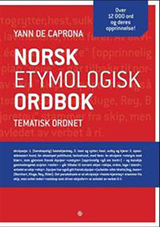John Keats
wring=her: pine
couched=liggende
beneath=under
tremble=skjelve
brooklet=bekk
´mid/amid=blant
hushed=dempet
fragrant=duftende
tyrian=dypfiolett
pinion=her: vinge
slumber=slumring
aurora=
morgengudinne
temple=tempel
moan=klage/jammer
incense=røkelse
censer=røkelseskar
teem=yngle
vow=(ekteskaps)løfte
fond=kjærlig,øm
haunt=spøke
bough=grein
piety=fromhet
lucent=skinnende
fane=helligdom
|
O GODDESS! hear these tuneless numbers, wrung
By sweet enforcement and remembrance dear,
And pardon that thy secrets should be sung
Even into thine own soft-conched ear:
Surely I dreamt to-day, or did I see
The winged Psyche with awaken’d eyes?
I wander’d in a forest thoughtlessly,
And, on the sudden, fainting with surprise,
Saw two fair creatures, couched side by side
In deepest grass, beneath the whisp’ring roof
Of leaves and trembled blossoms, where there ran
A brooklet, scarce espied:
’Mid hush’d, cool-rooted flowers, fragrant-eyed,
Blue, silver-white, and budded Tyrian,
They lay calm-breathing on the bedded grass;
Their arms embraced, and their pinions too;
Their lips touch’d not, but had not bade adieu,
As if disjoined by soft-handed slumber,
And ready still past kisses to outnumber
At tender eye-dawn of aurorean love:
The winged boy I knew;
But who wast thou, O happy, happy dove?
His Psyche true!
O latest born and loveliest vision far
Of all Olympus’ faded hierarchy!
Fairer than Phoebe’s sapphire-region’d star,
Or Vesper, amorous glow-worm of the sky;
Fairer than these, though temple thou hast none,
Nor altar heap’d with flowers;
Nor virgin-choir to make delicious moan
Upon the midnight hours;
No voice, no lute, no pipe, no incense sweet
From chain-swung censer teeming;
No shrine, no grove, no oracle, no heat
Of pale-mouth’d prophet dreaming.
O brightest! though too late for antique vows,
Too, too late for the fond believing lyre,
When holy were the haunted forest boughs,
Holy the air, the water, and the fire;
Yet even in these days so far retir’d
From happy pieties, thy lucent fans,
Fluttering among the faint Olympians,
I see, and sing, by my own eyes inspired.
So let me be thy choir, and make a moan
Upon the midnight hours;
Thy voice, thy lute, thy pipe, thy incense sweet
From swinged censer teeming;
Thy shrine, thy grove, thy oracle, thy heat
Of pale-mouth’d prophet dreaming.
Yes, I will be thy priest, and build a fane
In some untrodden region of my mind,
Where branched thoughts, new grown with pleasant pain,
Instead of pines shall murmur in the wind:
Far, far around shall those dark-cluster’d trees
Fledge the wild-ridged mountains steep by steep;
And there by zephyrs, streams, and birds, and bees,
The moss-lain Dryads shall be lull’d to sleep;
And in the midst of this wide quietness
A rosy sanctuary will I dress
With the wreath’d trellis of a working brain,
With buds, and bells, and stars without a name,
With all the gardener Fancy e’er could feign,
Who breeding flowers, will never breed the same:
And there shall be for thee all soft delight
That shadowy thought can win,
A bright torch, and a casement ope at night,
To let the warm Love in!
|
1
2
3
4
5
6
7
8
9
10
11
12
13
14
15
16
17
18
19
20
21
22
23
24
25
26
27
28
29
30
31
32
33
34
35
36
37
38
39
40
41
42
43
44
45
46
47
48
49
50
51
52
53
54
55
56
57
58
59
60
61
62
63
64
65
66
67
|
Notes:
"John Keats led a short, tormented life marked by great despair, obsessive and unconsummated love, and apparent poetic failure. Nonetheless and perhaps on account of this, he has since become possibly the most memorable and resounding poet of the Romantic period. 'Ode to Psyche' followed upon a tumultuous period of internal conflicts and resolutions within the poet in which relatively few actual poems were produced. Its remarkable emergence heralded in the more famous odes that are considered now some of his finest work. 'Psyche' is important as a stepping-stone piece, as the poem that squared away all his conflicting emotions and rose victoriously out of disillusionment and desperation to make sense of his pain. It tied up the loose ends of a very dark stage of his life, an amazing feat of finding peace among paradox, and cleared the slate for the rebirth of inspiration, with a vengeance."
Source: Matt Smauss - Berkely
Phoebe:
in Greek mythology, a Titan, daughter of Uranus and Gaea. By Coeus she was the mother of Leto and grandmother of Apollo and Artemis. She was also the mother of Asteria and Hecate. Her epithet was Gold-Crowned, but her name, like Apollo's forename Phoebus, signified brightness. In later mythology she was identified with the moon as were Artemis and her Roman counterpart Diana. …
Vesper:
Greek Hesperos, also called Vesper, in Greco-Roman mythology, the evening star, son or brother of Atlas. He was later identified with the morning star, Phosphorus, or Eosphorus (Latin: Lucifer), the bringer of light. Hesperus is variously described by different authors as the father of the Hesperides (the guardians of the golden apples) or of their mother, Hesperis.
oppdatert 20.03.2018
Page visited
2076 times
Totalt:
|


